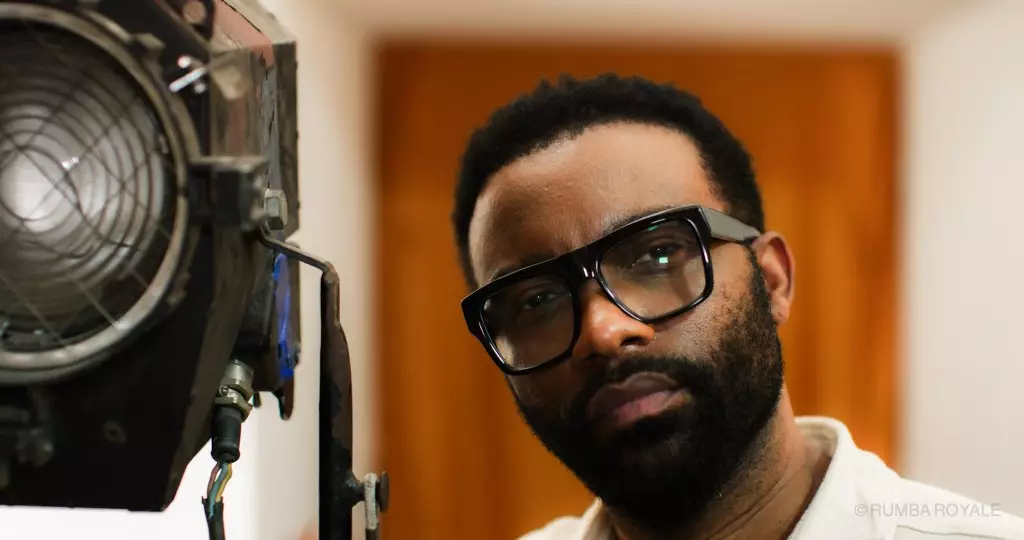The release of *Rumba Royale* is more than just the debut of a Congolese superstar; it is also a potential turning point for African cinema. Pathé Touch Afrique, having recently rebranded and with a renewed commitment to African films, is taking a bold step in amplifying voices and stories that have long been sidelined. This historical thriller, set against the backdrop of the Democratic Republic of Congo’s quest for independence, fuses rich cultural elements with universal themes, making it a compelling case for global audiences.
The importance of this film, debuting on December 12, cannot be understated, particularly for its ambitious scope despite budgetary constraints. Fally Ipupa, known as the “Prince of Rumba,” is not merely an entertainer; he embodies a cultural movement. This film could potentially leverage his existing fan base and translate it into a wider audience eager to engage with Congolese narratives. However, while the film has the potential for massive success, it also exposes the pitfalls and challenges for a burgeoning industry weighed down by historical neglect.
Our Stories Matter – But To Whom?
Fally Ipupa’s assertion that *Rumba Royale* is one of the biggest cinematic projects to emerge from Congo raises an important question: who decides which stories matter? In an age where representation is being reckoned with on a global scale, the imperative that African narratives be presented in mainstream cinema is more pressing than ever. The film’s themes, interlaced with Congolese rumba music, speak to a form of artistic expression that is deeply tied to identity.
Yet, the stakes are high. The success of *Rumba Royale* depends not merely on the quality of storytelling but also on how the film is received domestically and internationally. Can it break cultural stereotypes that have historically framed African stories as lesser when juxtaposed against Western narratives? For this film, and others like it, the goal should not merely be to capture attention but to challenge perceptions.
The Business of Storytelling
A noteworthy aspect of this venture is the new leadership at Pathé Touch Afrique, under Sébastien Onomo, which has resulted in strategic capital injections aimed primarily at French-speaking African talents. This implies a concerted effort to establish a sustainable industry that operates on its own terms, without relying on external validation from Western entities. The question hangs in the air: will audiences in both African and Western markets embrace such films? The obstacles are formidable; what has been the norm in global cinema often excludes African narratives, rendering them invisible.
The financing and production model of films like *Rumba Royale* speaks volumes about the evolution of the industry. Without the backing of major studios, many creators grapple with the challenge of not only producing quality work but also ensuring that their stories reach larger audiences. Pathé Touch Afrique’s ambition to secure wide distribution across African territories and even special screenings in Europe and the U.S. speaks to a vision of breaking barriers, but the effectiveness of this approach can only be gauged once the film launches.
A Cultural Renaissance or Corporate Machine?
As the filmmaking landscape evolves, so does the influence of corporations like Pathé. With a vested interest in exporting content, there is a fine line to tread between cultural preservation and commercial exploitation. The passion expressed by directors Yohane Dean Lengol and Hamed Mobasser mirrors a genuine desire to make an impact, but will their vision survive the pressures of a corporate framework? This duality brings forth an evolving narrative where local stories wrestle with global expectations.
The filmmakers are clear in their assertion: they believe local stories can resonate universally. However, history has taught us that good intentions do not always equate to meaningful representation and success. As *Rumba Royale* strives to position itself as a “love letter” to the Congo and its music, viewers must remain vigilant, questioning who benefits from such narratives and at what cost.
In a world increasingly defined by cultural dialogues, the outcome of offerings like *Rumba Royale* will play a significant role in shaping the future of African film. It remains to be seen if this film will be the harbinger of a new era or simply clock in as another missed opportunity. As the release date approaches, the anticipation is tinged with caution, for the stakes are indeed much higher than mere box office receipts.

